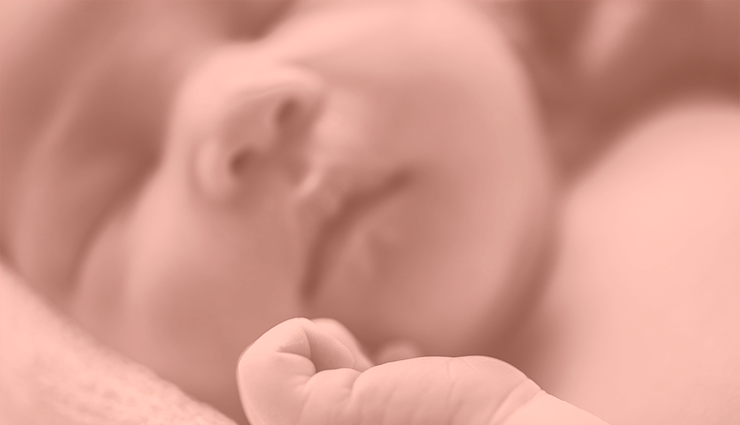IBgen BABY. Neonatal Genetic Study

How can we help you?
Non-obligation guidance
The IBgen BABY Neonatal Genetic Study (IBgen BABY) from the Instituto Bernabeu IBBIOTECH laboratories is the most complete test to determine whether a newborn baby is a carrier or affected by a genetic disease.
What is the IBgen BABY neonatal genetic study?
The IBGen BABY neonatal genetic study is an analysis performed on newborns to detect more than 1,500 hereditary diseases. It is more complete than the "heel prick test" performed in Spanish public hospitals. The IBGen BABY study analyses more than 1,300 genes and can identify diseases not included in the usual tests performed on newborns.
This study enables the early detection of diseases that can be treated promptly, enhancing the quality of life for both the babies and their families. Some of the diseases that can be detected with IBGen BABY are:
- Amino acid metabolism disorders.
- Fatty acid oxidation disorders
- Organic acid disorders
- Carbohydrate disorders
- Creatine metabolism disorders
- Lysosomal storage disease
- Blood lipid disorders
- Neurological diseases such as spinal muscular atrophy
- Congenital hearing loss
What would be the reason to have it done?
The IBGen BABY neonatal genetic study is performed to detect more than 1,500 inherited diseases in newborns. These diseases are not detected by the heel prick test usually performed in hospitals. The test can help parents prepare and plan for their child's care, and can help doctors make informed decisions about treatment.
Benefits of the IBGen BABY study:
- Provides valuable information about the baby’s genetic health.
- Allows early detection of genetic diseases.
- May improve treatment outcomes for babies with genetic diseases.
- Provides peace of mind for parents who are concerned about the genetic health of their newborn.
In which cases is it indicated?
The IBGen Baby neonatal genetic study is indicated in a wide variety of cases, including:
- Babies with a family history of genetic diseases: If there is a history of genetic diseases in your family, the IBGen Baby test can help identify whether your baby is at increased risk of developing them. This allows you to take preventive measures or start early treatment if necessary.
- Babies with congenital anomalies: If your baby has congenital anomalies at birth, the IBGen Baby test can help determine the genetic cause of these anomalies and guide treatment options.
- Babies with abnormal heel prick results: If your baby's heel prick test at birth shows abnormal results, the IBGen Baby study can provide more detailed information about the possible underlying genetic disease.
- Premature or low birth weight babies: Premature or low birth weight babies may have an increased risk of developing certain genetic diseases. The IBGen Baby study can help identify these babies and allow for early intervention.
- Couples at risk of having a child with a genetic disease: If you and your partner have a known risk of having a child with a specific genetic disease, the IBGen Baby test can help determine if your baby is affected by the disease.
To summarise, the IBGen Baby study is recommended for the genetic health of any newborn.
What is its impact?
One in four infant deaths is due to genetic disorders. The World Health Organisation (WHO) estimates that around 2,500 babies in Spain die annually due to genetic causes and according to a study carried out by the Ministry of Health in 2020, 2.2% of infant deaths were due to congenital anomalies. In addition, another 170,000 children between 1 month and 5 years of age die worldwide due to this type of diseases.
In the same way, it is estimated that 25% of infant deaths are due to genetic disorders and about 30% of affected children do not survive beyond the age of five years. Genetic diseases are the leading cause of mortality in neonatal intensive care units and up to 70% of admissions to paediatric intensive care units may be wholly or partly associated with a genetic disease.
How is it diagnosed?
The sample to be tested should be obtained from cord blood at the time of delivery or saliva.